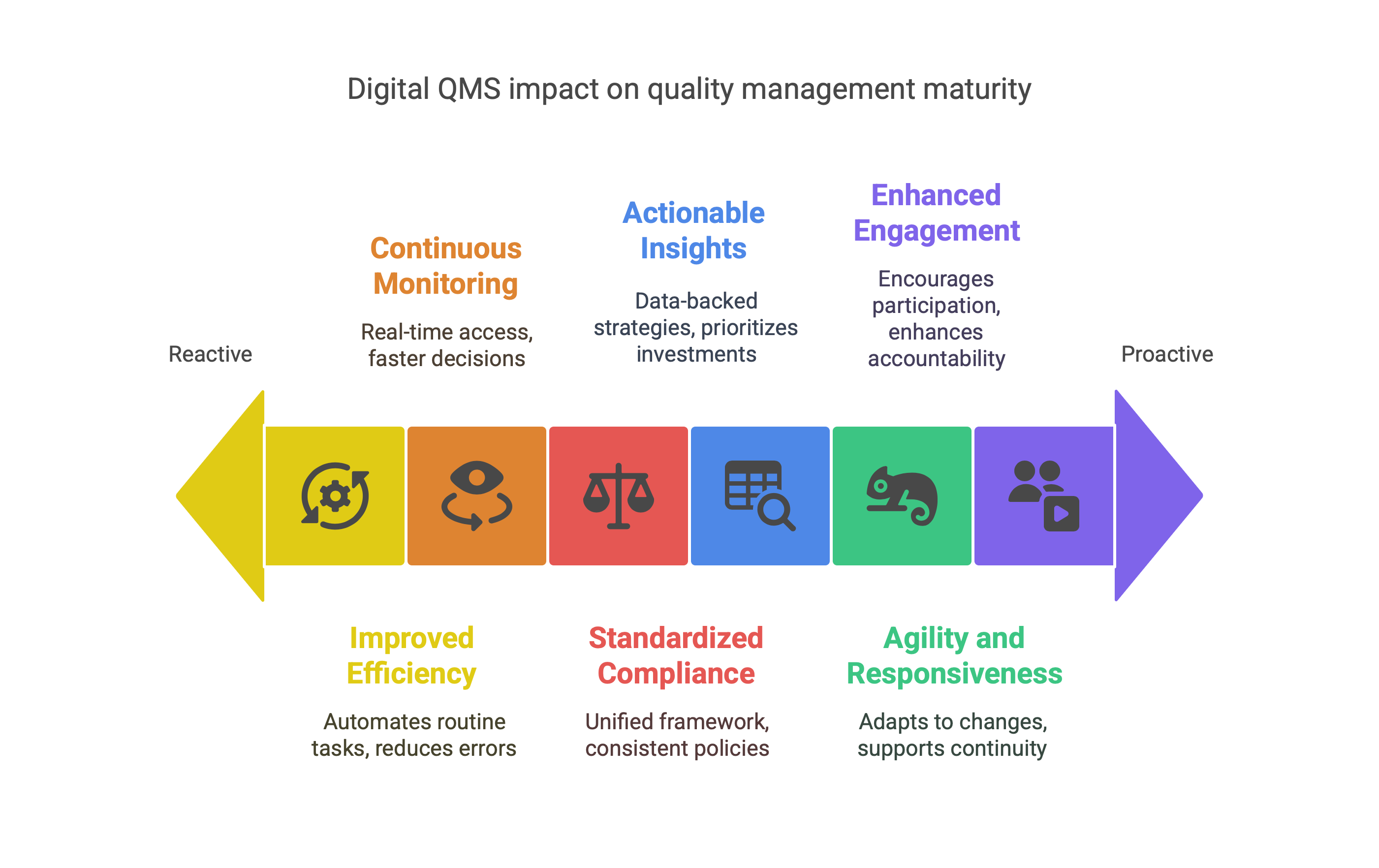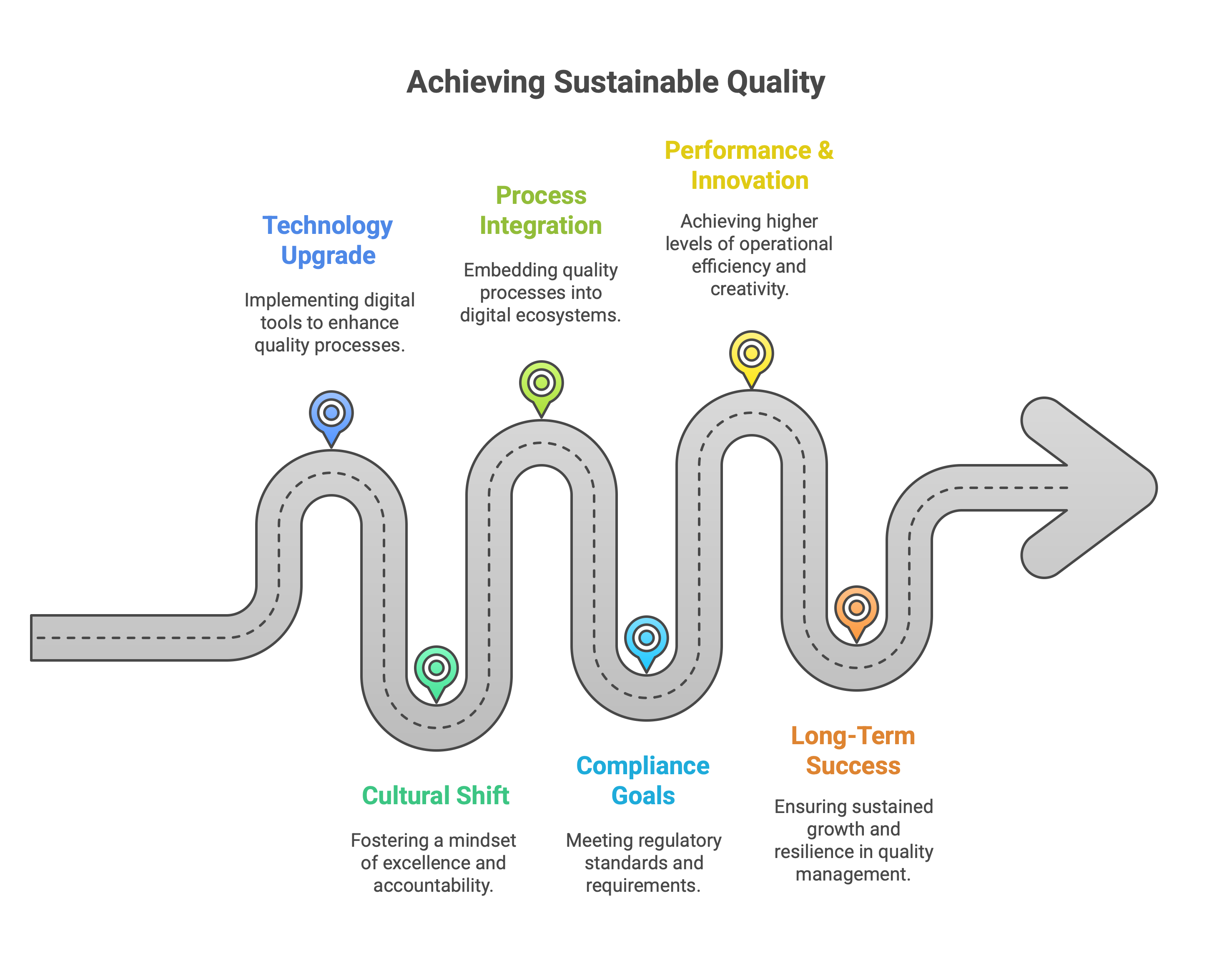Digitizing your QMS transforms it from a compliance mechanism into a dynamic enabler of operational excellence. By leveraging modern technology, businesses can drive quality initiatives that are data-driven, agile, and deeply integrated into daily operations. Here’s how digitization revolutionizes QMS performance.

1. Improved Efficiency Through Workflow Automation
Digitized QMS platforms automate routine quality tasks such as document approval, audit scheduling, and incident reporting. This reduces bottlenecks, eliminates manual errors, and accelerates response times. Teams can shift their focus from administrative duties to proactive quality improvement.
2. Continuous Quality Monitoring in Real Time
With real-time access to performance indicators, audit findings, and non-conformance reports, organizations can identify issues before they escalate. Digital QMS tools enable live tracking and instant alerts, supporting faster decision-making and continuous process optimization.3. Standardized Compliance Across the Organization
Digital QMS systems provide a unified framework for meeting regulatory and certification requirements, regardless of location or department. This ensures consistent application of policies and procedures, simplifying internal audits and ensuring sustained compliance with ISO and industry-specific standards.4. Actionable Insights From Quality Data
By digitizing data collection and reporting, QMS platforms turn raw information into actionable insights. Dashboards, trend analysis, and KPI tracking allow leadership to prioritize quality investments, identify patterns, and address systemic issues with data-backed strategies.5. Agility and Responsiveness to Change
A digital QMS can quickly adapt to changes in regulations, customer expectations, or supply chain dynamics. Modular features and cloud-based updates ensure your system remains current and resilient, supporting business continuity even under evolving conditions.6. Enhanced Ownership and Engagement
Modern QMS platforms encourage employee participation by providing intuitive interfaces, task notifications, and mobile accessibility. Clear workflows and transparency enhance accountability, empowering teams to take ownership of quality outcomes.Conclusion: A Smart Investment for Sustainable Quality
Digitizing your QMS is more than a technology upgrade—it's a cultural shift toward excellence, agility, and accountability. By integrating quality processes into digital ecosystems, organizations not only meet compliance goals but unlock new levels of performance and innovation. The result is a smarter, more resilient approach to quality management that drives long-term success.







 BR 3644
BR 3644  SG 1453
SG 1453  VN 1108
VN 1108  US 1071
US 1071  TR 543
TR 543  HK 384
HK 384  IQ 315
IQ 315  SA 298
SA 298 

